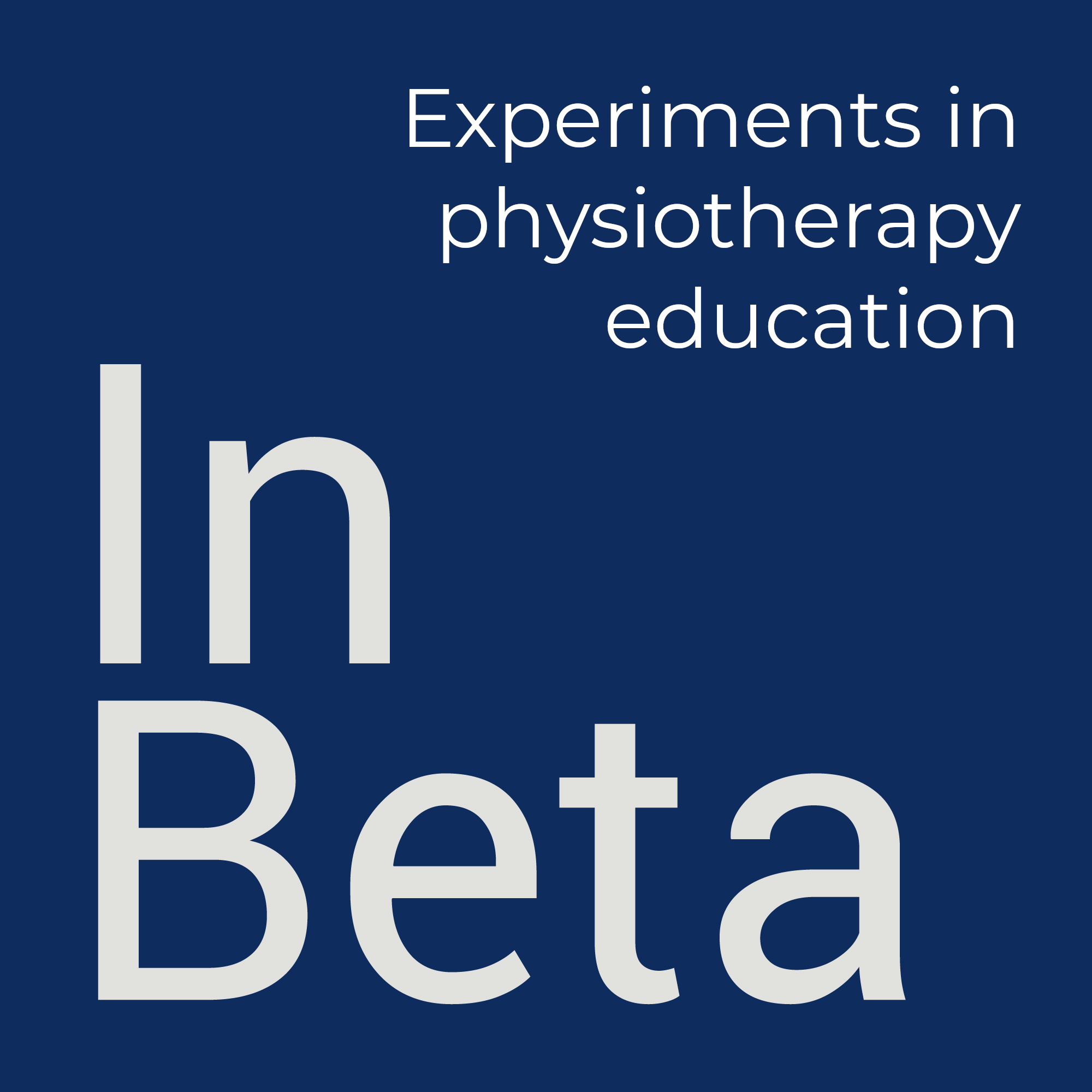In medical education, teaching is currently viewed as an intervention that causes learning. The task of medical education research is seen as establishing which educational interventions produce the desired learning outcomes. This ‘medical model’ of education does not do justice to the dynamics of education as an open, semiotic, recursive system rather than a closed, causal system.
Gert Biesta and Marije van Braak
Introduction
It’s one thing to pay attention to the latest evidence on effective learning strategies or to try a different variation on the flipped classroom, and quite another to apply rigour to what we do in the classroom, gather data on the outcomes, and share what we learned with colleagues. In other words, to apply scholarly principles to our practice of teaching.
To be clear, using evidence-based findings to inform your own teaching is brilliant and a great first step to improving physiotherapy education in general. But there’s a serious lack of education research in the context of physiotherapy education and we would do well as a community to try and understand why this is.
I wonder if it has something to do with being steeped in a tradition of positivism and “objective testing” of patients as part of undergraduate and postgraduate education, and a subsequent feeling of disconnect when exploring social science and the more interpretivist traditions in education research.
Whatever the reason, I’d love to see more physiotherapy-specific education research being shared. If this is something that you’re interested in but have been hesitant to explore, please let us know and we’ll see if we can help.
Podcast
Sherbino, J., Frank, J. R., & Snell, L. (n.d.). What enables CE research? Mentoring for innovation in education and care (No. 111). Retrieved 20 October 2020.
This is a short (14 minute) episode where the podcast hosts discuss a commentary/opinion paper that discusses the value and challenges of conducting education research in the context of medical education. The lack of effective and consistent research mentorship and research mentor training in medical education is an important constraint on the development of innovative and high quality medical education research. The main suggestion discussed in the podcast is that novice education researchers find colleagues who have published in the domain, who perhaps have funding to support education research, and who might be willing to provide mentoring.
Blanchard, R. D., Visintainer, P. F., & La Rochelle, J. (2015). Cultivating Medical Education Research Mentorship as a Pathway Towards High Quality Medical Education Research. Journal of General Internal Medicine, 30(9), 1359–1362.
Article
Gruppen, L. D. (2008). Is medical education research ‘hard’ or ‘soft’ research? Advances in Health Sciences Education, 13(1), 1–2.
The challenge of doing medical education research is in many ways a consequence of dealing with individuals with free-will and self-determination. It is also a consequence of working with outcomes that, rather than being as simple as a ‘disease,’ are rich interactions of the individual’s prior experience, goals, and motivation; the faculty and curriculum; and the larger learning, practice, and societal environments. Such complexity underlies both the challenge but also the excitement of doing research in medical education.
See a blog post with a summary: Rowe, M. (2013, September 6). If basic research were conducted under the conditions of educational research. /usr/space.
Resource
Share a finding from your classroom or clinical setting
One of the barriers to conducting education research may be the misunderstanding that you have to “prove” something beyond reasonable doubt. This is often the result of the kinds of thinking we use in clinical practice where we develop the hypothesis based on the interview and then seek to confirm the hypothesis through “objective” testing.
Have no fear; there’s none of that in education research. Well, I suppose there could be. But the purpose of education research is often simply to come to a better understanding of what’s going on. You don’t have to prove anything.
An education research project often begins with the question, “I wonder what would happen if…?” Then you do the thing and observe what happened. Maybe you do the thing again with slight different variables. Make another observation. Keep doing the thing and making observations. Talk to your students about what you observe. Ask them for their interpretations. Why do they think that the thing is interesting (or not)? Then share what you learned in a public forum. You could write a blog post or post a series of tweets or make a YouTube video.
Clearly this is not high-level research that’s going to get you published in AHSE. But maybe it’s enough of a first step that the answer to your next question will.
If you have a classroom experience that you think others would find useful or interesting, consider submitting a short piece (a “research report”) to OpenPhysio, an open-access journal with a focus on physiotherapy education.
